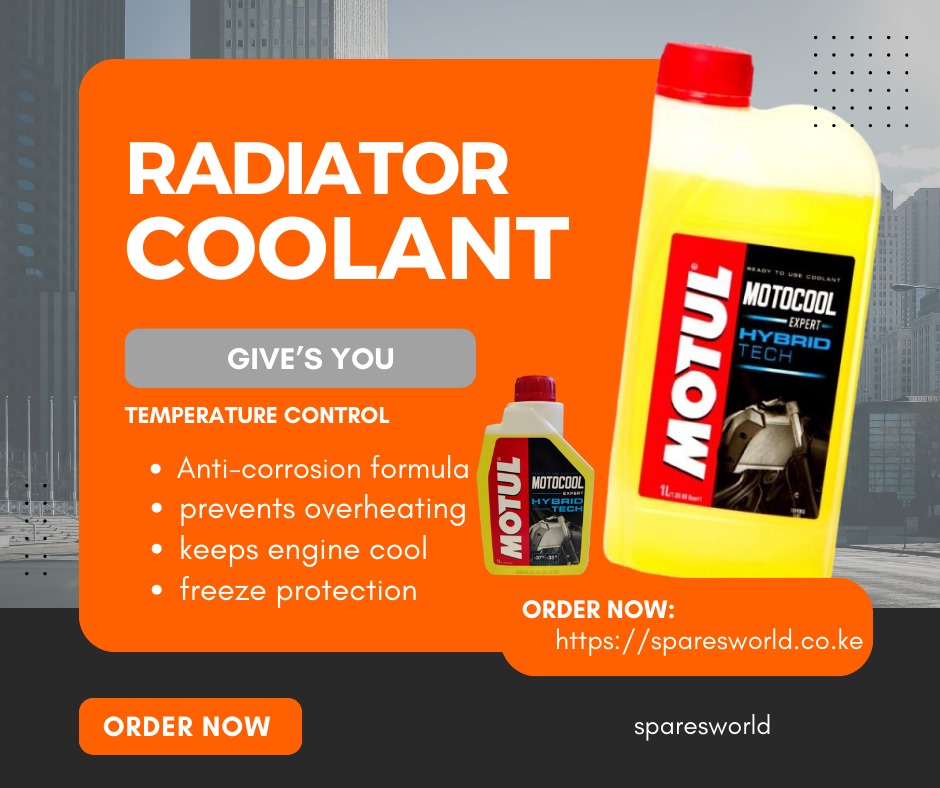Top Coolant Brands for Your Vehicle: A Comparison

Discover the best coolant solutions to maximize your vehicle's performance and longevity.
Understanding Coolant and Its Importance in Vehicle Maintenance
Coolant, also known as antifreeze, is a vital fluid that helps regulate your vehicle's engine temperature. It prevents the engine from overheating in the summer and freezing in the winter. Coolant also protects the engine from corrosion, scaling, and other forms of damage that can occur over time. Understanding the role of coolant in your vehicle's maintenance can help you make informed decisions about the type and brand of coolant you use.
Regularly checking and maintaining the correct coolant levels is crucial for the longevity and performance of your vehicle. Neglecting this essential fluid can lead to costly repairs and decreased efficiency. This section covers the basics of what coolant is and why it's indispensable for your car.
Exploring the Top Coolant Brands on the Market
When it comes to selecting a coolant, there are several top brands that have established themselves as reliable and effective. Brands like Prestone, Zerex, and Peak are renowned for their high-quality formulations. Prestone is known for its universal coolant that is compatible with almost every vehicle type. Zerex offers a range of products tailored to specific needs, such as their G-05 formula for Ford and Chrysler vehicles. Peak provides both conventional and extended-life coolants, giving consumers a variety of options to choose from.
Each brand has unique features and benefits that make them stand out. For instance, Prestone's formula includes additives that provide enhanced protection against rust and corrosion. Zerex's Asian Vehicle formula is specially designed for Asian makes, ensuring compatibility and optimal performance. Peak's Long Life coolant is designed to last up to 150,000 miles, reducing the frequency of coolant changes.
How to Choose the Right Coolant for Your Vehicle Type
Choosing the right coolant for your vehicle involves considering several factors such as the make, model, and year of your car. Different vehicles require different types of coolants. For example, older vehicles might benefit from traditional green antifreeze, while newer models often require extended-life coolants that offer longer protection. Always refer to your vehicle's owner manual to determine the recommended type of coolant.
Additionally, consider the climate where you drive most frequently. If you live in a region with extreme temperatures, you may need a coolant with a higher concentration of antifreeze properties. Compatibility with your vehicle's materials, such as aluminum and plastic components, is also essential to prevent deterioration and leaks.
Comparative Analysis of Coolant Brands Based on Performance and Price
When comparing coolant brands, it's important to look at both performance and price. Prestone, for instance, offers excellent performance with a universal formula priced moderately. Zerex, on the other hand, provides specialized formulas that might be slightly more expensive but offer targeted protection for specific vehicle types. Peak offers a balanced approach with its Long Life coolant, providing extended protection at a competitive price.
Performance metrics such as the coolant's ability to prevent overheating, freezing, and corrosion are critical. Independent tests and customer reviews can provide insights into how well a coolant performs under various conditions. Price is also a factor, as higher-priced coolants often come with advanced formulations that offer extended protection and fewer maintenance intervals.
Tips for Changing and Maintaining Your Vehicle’s Coolant System
Proper maintenance of your vehicle's coolant system is essential for its longevity and performance. Begin by checking the coolant level regularly and topping it off as needed. It's also crucial to flush the coolant system according to the manufacturer's recommendations, usually every 30,000 to 50,000 miles or every 2 to 5 years.
When changing the coolant, make sure to use the correct type and mix it with distilled water if required. Avoid mixing different types of coolants, as this can lead to chemical reactions that diminish their effectiveness. Finally, inspect the coolant system for leaks or damage, paying close attention to hoses, clamps, and the radiator. Regular maintenance can prevent major issues and keep your vehicle running smoothly.

 Loading..
Loading..